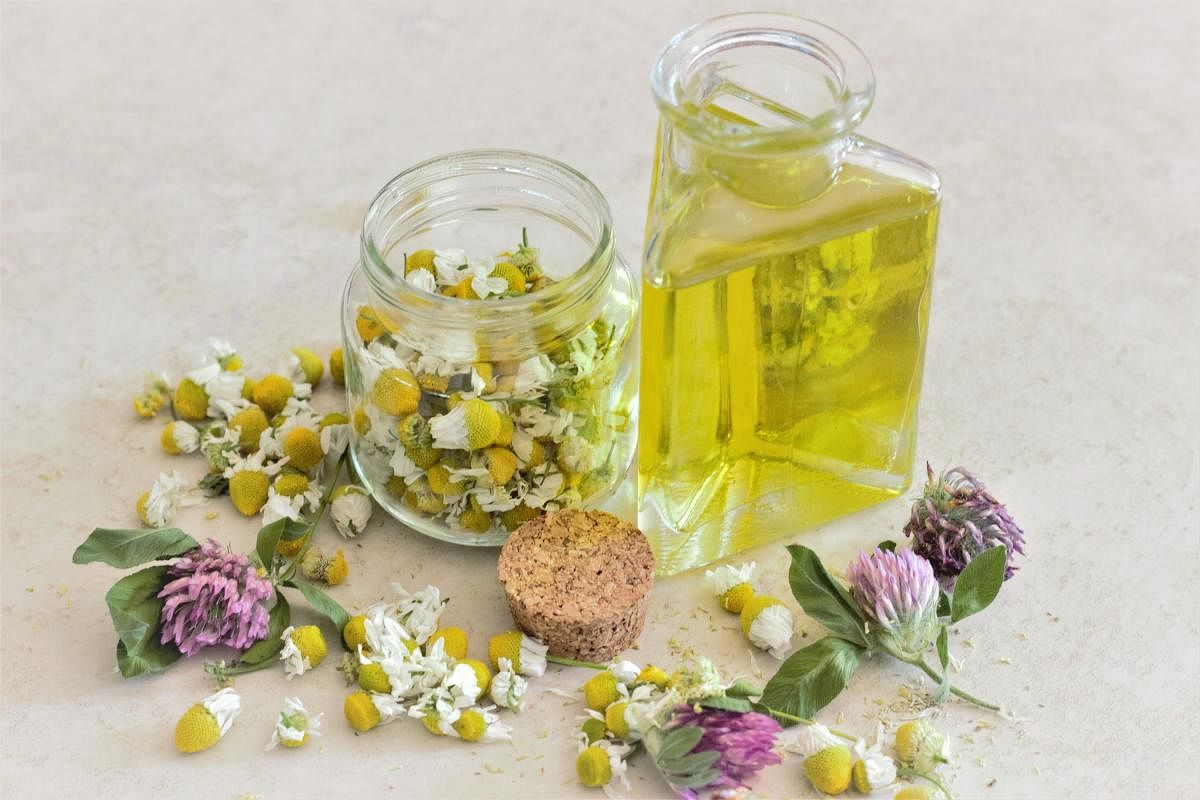
When we talk about Ayurveda, we often take it as a form of medicinal treatment rather than taking it as a lifestyle. Yes, Ayurveda has been a way of life for centuries and has helped mankind thrive with its effective and timely remedies. It has not only helped us in times of immense disorderly distress but also kept us on the path of a long life that can be happily lived.
Ayurveda strongly believes that good health starts with the proper metabolism of food and healthy digestion. It is based on the idea that food, when consumed according to our individual needs, acts as a medicine that balances our bodies and promotes good health.
Ayurveda, our ancient medical system, is a life science that comes up with the life tools to stay healthy, energetic, and realise our full human potential. The good habits that add health to your years according to Ayurveda include eating three balanced meals at the same time daily.
There are so many herbal ingredients that have various health benefits. Herbs and spices fight inflammation and reduce damage to our body’s cells as each one is rich in phytochemicals, which are healthful plant chemicals. Herbs like amla, ashwagandha, turmeric, garlic, cumin seeds, black pepper, and so on will not only be healthy but also add flavour to our diet. There are other herbal ingredients like neem which helps fight acne by inhibiting bacterial growth, tulsi which has beneficial results for respiratory wellness, guduchi which supports the immune system, brahmi which improves cognitive performance and is a memory enhancer, coriander that helps with weight loss, and ashwagandha which ultimately helps cope with mental and physical stress.
Our body is always in an endless battle with bad bacteria, viruses, excess levels of some vitamins, and pesticides. Throughout human history, we have been aware of substances that can harm or even kill us; for example, toxins created by burning sugars, fats, protein, or from external sources like medications, drugs, hormone enhancers, food additives, preservatives, food colourings, sweeteners, flavours enhancers, alcohols, volatile organic compounds, fumes, air pollution and so on. All these together adversely impact our health which can reduce the life expectancy rate at a fast pace.
A good guide available from the National Institutes of Health shows how to use a variety of herbs and supplements. Among chamomile’s many uses, it is taken to improve sleep quality, reduce anxiety, reduce ageing, and treat gastrointestinal problems, loss of appetite, and diabetes.
Cinnamon is taken to treat gastrointestinal problems, loss of appetite, and diabetes. Additionally, herbal products and supplements promise to alleviate a host of ailments. Bitter herbs treat asthma, constipation, and aid the cardiovascular system, sweet herbs relieve pain and improve splenic function, and spicy herbs treat respiratory problems, colds, and improve blood circulation; sweet herbs boost immunity; herbs that are sour treat liver disorders and improve digestion; salty herbs improve kidney health; bland herbs improve overall health; and so on.
From ancient times, people have relied on nature and natural resources for food and medicine. Herbs are like other plants that we rely on for food. Interestingly, many so-called modern “medicines” are classified as herbs. Generally, herbal medicines are simply medicines that happen to be natural and gentle, when used with knowledge of how they work.
(The author is the business head of a healthcare company.)